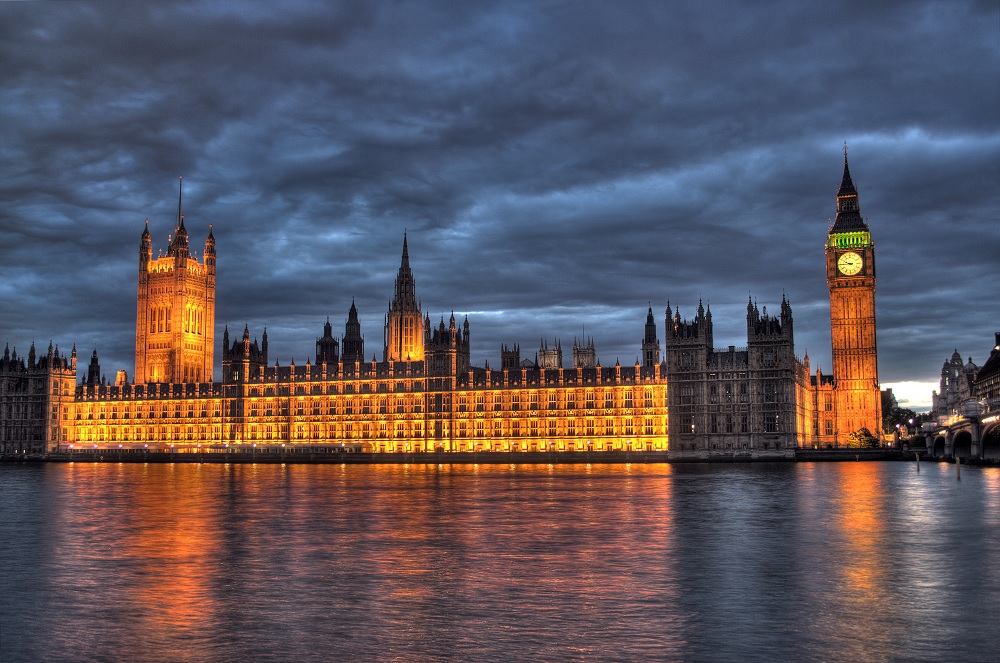Welsh listed as ‘foreign language’ on website of the UK Parliament

Welsh is listed as a “foreign language” on the website of the UK Parliament – more than five decades after Gwynfor Evans first challenged MPs to stop treating it as such.
Shortly after his historic election as MP for Carmarthen in 1966, Evans was called to order by the House of Commons Speaker for asking then Prime Minister Harold Wilson a question in English and then Welsh.
Plaid Cymru’s first MP replied: “Is it your Ruling, Mr Speaker, that no one may address this House in any language but English, and, therefore, that the Welsh language must always be regarded in this House—although it is an ancient British tongue—as a foreign language?”
Despite UK Parliament authorities softening their stance since, Welsh is still ranked alongside French, Spanish, German and a dozen other foreign languages on its official website.
The House of Commons’ transparency information includes a section titled ‘MPs Foreign Language courses’ which details spending on classes following a 2001 provision to “enable Members to learn a foreign language or develop existing skills.”
Sandwiched between claims for German and Spanish tuition, the list includes £379.71 cost of a Welsh course for Cardiff North MP Anna McMorrin in 2018/2019.
Responding, Plaid Cymru’s leader in Westminster, Liz Saville Roberts MP, said: “Twenty-eight years since Welsh has supposedly had full equal status with English, Westminster still hasn’t caught up with the times.
“It is only the latest example in Westminster’s long tradition of denying equal rights and respect for Britain’s oldest language. Many MPs and staff in Westminster carry out their duties through the medium of Welsh, and it is the preferred language of several thousands of our constituents. Yet, it is still treated with contempt by many.
“Among the plethora of reforms needed for Westminster to be considered a democratic parliament, Welsh must be granted official status so that our constituents can be fully represented. What would be even better, of course, would be a fully bilingual, independent Wales.”
‘Welsh corner’
Michael Lord, a Conservative peer and co-owner of an Anglesey holiday park, was the last person to refer to Welsh as a “foreign language” in the Commons.
After Conservative MP Nigel Evans said “Gwyl Ddewi hapus i chi” to MPs in a Welsh Affairs debate on March 2, 2000, the then Deputy Speaker interjected to say: “I remind the honourable Gentleman that foreign languages are allowed in the Chamber, but an immediate translation must be added.”
Late Labour MP Paul Flynn responded: “This is the only real Parliament that Wales has. Are you saying that, in this Parliament, the status of the language is the same as that of Slovenian or Ethiopian or any other language?”
Another notable attack on Welsh was by the Barry-born Labour MP for Preston North, Ronald Atkins, in 1978 when he said: “To the great majority of people living in Wales Welsh is a foreign language – it is a weak language compared with the most important and the strongest language in the world – English.”
MPs are still unable to speak Welsh in the main chamber but have been allowed to use Welsh in committee hearings since 1996.
Parliamentary authorities also sought to reach out to Welsh speakers in 2016, launching a “Welsh corner” on its website.
A resolution passed by the Commons in 2017 stated that “whilst English is and should remain the language of this House, the use of Welsh be permitted in parliamentary proceedings of Select Committees and of the Welsh Grand Committee held in Wales and at Westminster.”
When it comes to Welsh MPs learning other languages, the UK Parliament’s website shows Llanelli MP Nia Griffith has been learning Polish, while Preseli Pembrokeshire MP Stephen Crabb has been learning French.
Welsh Conservative chairman Glyn Davies was learning Colombian Spanish for three years before standing down as an MP and former Labour MP for Clwyd South Susan Elan Jones was learning French before losing her seat in 2019.
Support our Nation today
For the price of a cup of coffee a month you can help us create an independent, not-for-profit, national news service for the people of Wales, by the people of Wales.






